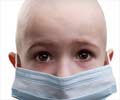Chemotherapy and radiation can have long-term effects on bone health, impacting the attainment of peak bone mass, predisposing to premature low bone mineral density, impairment of bone quality or avascular necrosis of bone.

TOP INSIGHT
New International Osteoporosis Foundation (IOF) Working Group publication reviews bone complications in childhood cancer survivors and provides evidence-based recommendations for the management of long-term bone health.
Read More..
Professor Maria-Luisa Brandi, Head of the Bone Metabolic Diseases Unit, Department of Biomedical, Experimental and Clinical Sciences, University of Florence, Italy, and lead author of the study, states: "In children and adolescents treated for cancer, the attainment of peak bone mass, which is a fundamental factor affecting bone mass in adulthood, can be negatively affected. Lower bone mineral density and microarchitectural deterioration can persist during adulthood, thereby increasing fracture risk. That is why the bone health of children and adolescents with a cancer history should be carefully monitored, and patients should be informed of possible late complications of their previous medical treatment."
As well as cancer treatments such as chemotherapy, radiotherapy and stem-cell transplantation, factors which contribute to bone mass impairment in childhood cancer survivors include an inadequate diet (especially calcium and vitamin D deficiency); prolonged treatments with glucocorticoids; hormone alterations involving growth hormone and/or gonadal hormones; reduced or absent physical activity, and inflammation and altered secretion of cytokines due to cancer cells.
The review also points to areas where there are substantial knowledge gaps and identifies the need for further research to clarify whether improving bone health in childhood cancer survivors differs from the management of bone disorders in the general population.
Professor René Rizzoli, Chair of the IOF Cancer and Bone Working Group, added: "Cancer treatments in youth have a multifactorial impact on bone fragility and a core objective, both during treatment and once the patient is in remission or cured, is to reduce the impact on future adult bone health. This requires long-term follow up, involving effective transition from pediatric to adult care, as well as good communication between pediatric oncology and primary care. As clinicians we must work together to help to maintain and protect our young patients' skeletal health."
Source-Eurekalert
 MEDINDIA
MEDINDIA

 Email
Email










